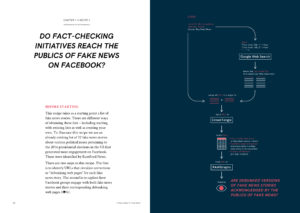 Deep fakes are a profoundly serious problem for democratic governments and the world order, according to Robert Chesney of the University of Texas School of Law, and Danielle K. Citron of the University of Maryland Francis King Carey School of Law. A combination of technology, education, and public policy can reduce their effectiveness, they write for the Council on Foreign Relations:
Deep fakes are a profoundly serious problem for democratic governments and the world order, according to Robert Chesney of the University of Texas School of Law, and Danielle K. Citron of the University of Maryland Francis King Carey School of Law. A combination of technology, education, and public policy can reduce their effectiveness, they write for the Council on Foreign Relations:
- Enhancing current efforts by the National Science Foundation, Defense Advanced Research Projects Agency (DARPA), and Intelligence Advanced Research Projects Agency (IARPA) could spur breakthroughs that lead to scalable and robust detection capacities and digital provenance solutions. ….
 The United States should also improve its efforts to combat hostile information operations that target U.S. democracy and social cohesion, whether they feature deep fakes or not. One of the most potent tools available to the U.S. government is its ability to issue targeted economic sanctions. ….
The United States should also improve its efforts to combat hostile information operations that target U.S. democracy and social cohesion, whether they feature deep fakes or not. One of the most potent tools available to the U.S. government is its ability to issue targeted economic sanctions. ….- For some organizations and individuals, the best defense against deep fakes would be to establish highly credible alibis regarding where they have been and what they have been doing or saying. In practical terms, politicians and others with reputations to protect could have an increased interest in life-logging services. …
- Finally, there is the simple option of spreading public awareness of the idea of deep fakes and encouraging skepticism of video and audio “evidence.” Yet this approach entails its own risk—the more people doubt their eyes and ears when faced with apparent evidence, the easier it becomes for liars to dispute legitimate proof of their misdeeds, a phenomenon known as the liar’s dividend. ….







